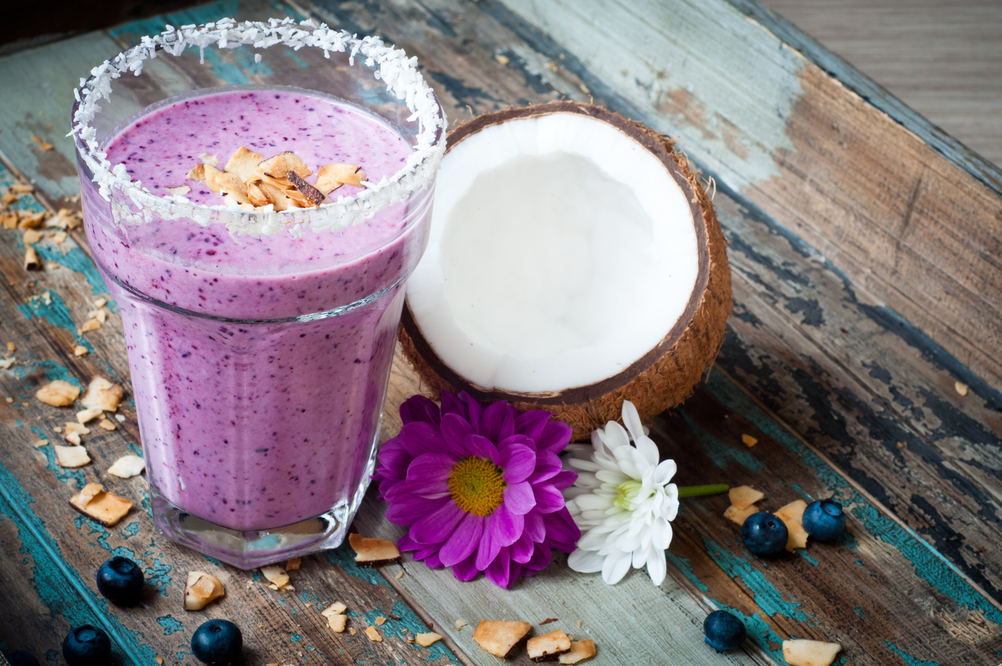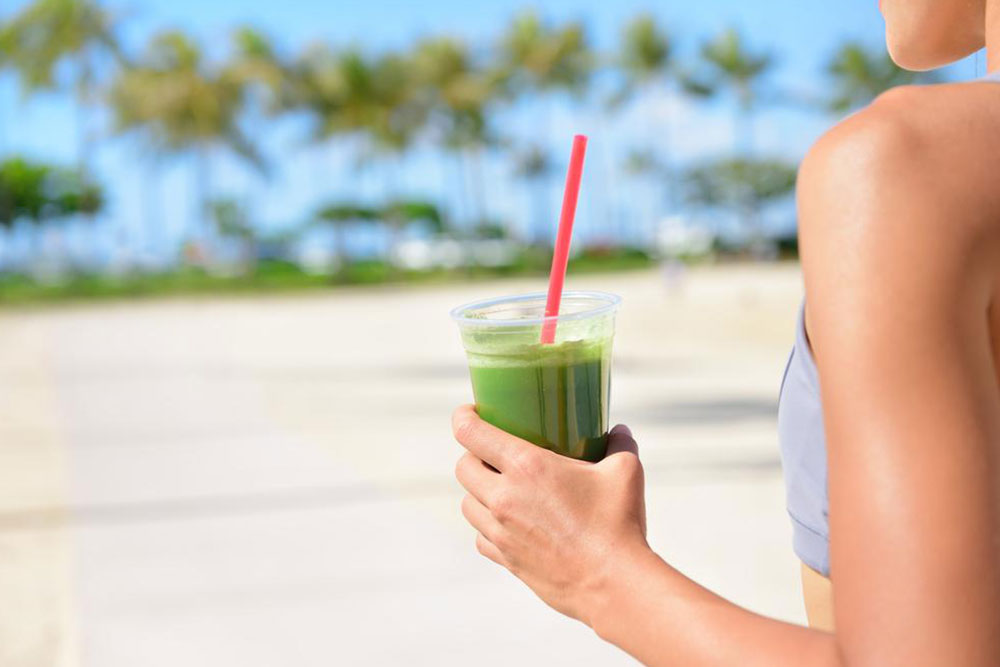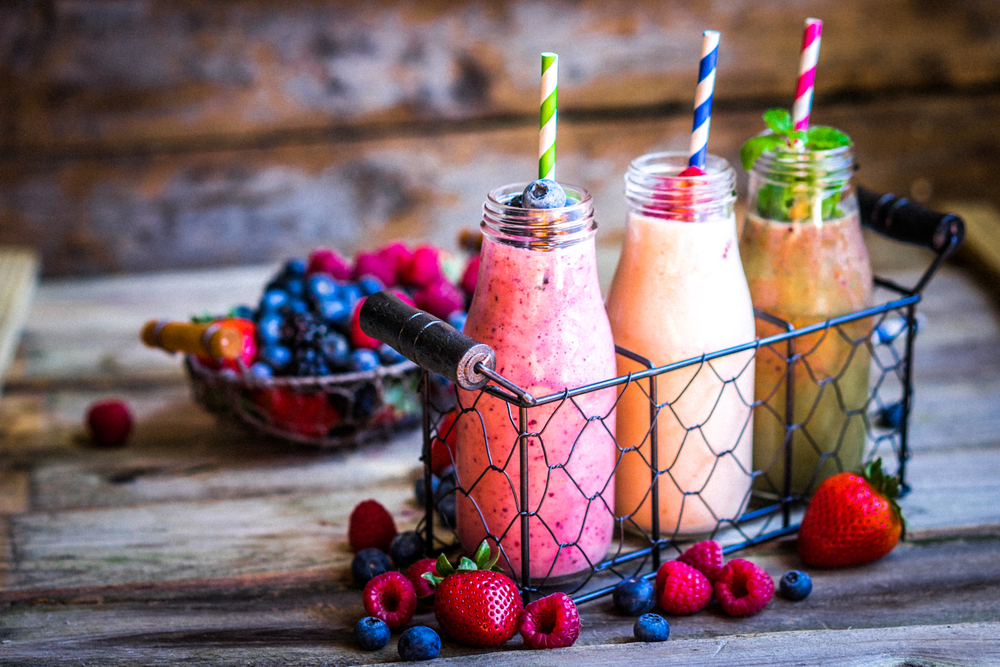8 reasons smoothies may be a good breakfast option test change title
8 Reasons Smoothies May Be A Good Breakfast Option
Smoothies are thick and creamy blends of ingredients like fruits, vegetables, juices, yogurt, nuts, seeds, and various types of milk. They have gained a lot of popularity over the last few years. From a delicious sweet treat to a wholesome and nourishing breakfast option, these versatile drinks can be found just about anywhere. This article explores several different types of smoothies, and why they may be a good choice for many.

Benefits of Smoothies:
There are several reasons behind the popularity of smoothies. Some of them include:
- May boost fruit and vegetable intake: Smoothies can easily pack in 2-3 servings of fruits and vegetables, making them an excellent way to increase fruit and vegetable intake. Produce-loaded smoothies are also a stellar source of vitamins, minerals, and antioxidants.
Getting the recommended dose of fruits and vegetables per day (around 5 cups or 400 grams) can help reduce inflammation, aid digestion, and lower one’s risk of chronic conditions such as cardiac issues, osteoporosis, and age-related cognitive decline.
For a simple and delicious fruit and vegetable smoothie, blend some kale, mango, orange, and choice of milk. Alternatively, try a nourishing cherry smoothie, by blending water, spinach, cherries, milk, and banana.
- May support increased fiber consumption: Smoothies contain several fiber-rich ingredients such as fruits, vegetables, whole grains, probiotic-rich yogurt, kefir, nuts, seeds, and legumes. These can help prevent constipation and support healthy bacteria in the stomach. High-fiber smoothies also help regulate digestion and promote regular bowel movements. Fiber intake has also been associated with a reduced risk of chronic conditions such as heart disease and type-2 diabetes.
Some examples of fiber-rich smoothies include an avocado-pineapple smoothie with banana and chia seeds, or a high-fiber detox smoothie made using ingredients such as milk, spinach, cooked oats, apple, raspberries, blackberries, and flaxseed.
- May lead to improved energy levels: Smoothies are a great way of boosting energy naturally since they can be full of nutrient-rich foods like bananas, berries, and greens. Using this combination for a breakfast smoothie is a simple yet stupendous way of kickstarting the morning, and ensuring one stays full until lunch.
- Promotes hydration: Staying hydrated is crucial for maintaining one’s health, as it helps regulate body temperature, keep the joints lubricated, prevent infections, deliver nutrients to cells, and ensure proper functioning of the organs. Smoothies can help people meet their daily hydration goals, as they often contain water-rich liquids such as coconut water and juices. Adding water-rich vegetables such as cucumber and celery may also be beneficial for some.
- May help eliminate food cravings: Smoothies may also be used as a meal replacement option at times, especially when one is trying a calorie-controlled eating plan. High-fiber smoothies made with leafy greens, fruits, and seeds and some added protein also help promote satiety and reduce cravings for unhealthy snacks.
- May lead to enhanced skin quality: Fruits and vegetables are a rich source of antioxidants. These antioxidants get rid of free radicals in the body, to improve overall health. They also reduce the risk of premature aging and skin damage. Consuming smoothies made using ingredients like berries, citrus fruits, and leafy greens can help reduce the appearance of fine lines and wrinkles, and boost skin quality.
- Convenient and time-saving: One of the best things about smoothies is that they are ridiculously easy to make. There’s no need to finely chop ingredients, or dirty up multiple dishes. All it takes to make a smoothie is a blender, some roughly chopped fruits or vegetables, some milk, water, or yogurt, and ice!
- Easily customizable: Another special quality about smoothies is that they can easily be personalized to suit one’s nutritional needs and flavor preferences. Those with an affinity for sweeter beverages can opt for yogurt fruit smoothies, or add a drizzle of honey or agave on a green smoothie. For a protein blast, simply blend in a little silken tofu or cottage cheese. Or for a delicious and indulgent dessert, blend ice cream with fruits or other toppings of choice!
It is also possible to adjust the texture of the smoothie to one’s liking – for thicker smoothies, add more frozen fruit or ice, while for thinner smoothies, just add a little more liquid.
A smoothie’s health benefits are dependent on the quality and quantity of ingredients used. When making or buying a smoothie, it is important to exercise caution, since many contain added sugars. Not only does this reduce the beverage’s nutritional value, but it also puts one at higher risk for chronic conditions like heart disease, type-2 diabetes, and liver disease. Instead of using sweetening agents like sugar, honey, maple syrup, ice cream, sherbet, and agave nectar to smoothies, opt for naturally sweet fruits like ripe bananas, peaches, apples, mangoes, or strawberries. When buying bottled smoothies, check the label carefully for added sugar content, or ask for nutritional information at the counter.
Types of Smoothies:
Based on the ingredients used, smoothies are mainly categorized into three different types:
- Fruit smoothies: These are generally made by blending one or more fruits, with fruit juice, water, milk, or ice cream.
- Green smoothies: These smoothies are packed with fresh green vegetables such as spinach, kale, etc. Some may also include a little fruit for a dash of sweetness.
- Protein smoothies: Protein smoothies incorporate a major source of protein such as Greek yogurt, cottage cheese, silken tofu, or protein powder. These are great for promoting post-workout recovery, as they aid in replenishing glycogen stores and repairing torn muscles.
Delicious, easy to make, and rich in nutrients, a smoothie is one of the simplest breakfast or snack options. To maximize health benefits from smoothies, use a combination of fruits and vegetables to keep sugar content low, and avoid glycemic spikes. It is also important to be mindful of the quantity and quality of ingredients added and avoid excess sugar.
References:
- https://www.healthline.com/nutrition/are-smoothies-good-for-you#sugar-content
- https://familiestogetheroc.org/6-important-benefits-of-drinking-healthy-smoothies-with-a-bonus-smoothie-recipe#:~:text=In%20conclusion%2C%20smoothies%20are%20a,customizable%20to%20suit%20individual%20preferences
- https://www.hsph.harvard.edu/news/hsph-in-the-news/the-importance-of-hydration/#:~:text=Drinking%20enough%20water%20each%20day,quality%2C%20cognition%2C%20and%20mood .
- https://www.webmd.com/diet/smoothies-good-for-you#:~:text=Smoothies%20can%20be%20beneficial%20to,blended%20beverages%20to%20your%20life .
- https://www.bbcgoodfood.com/howto/guide/are-smoothies-good-you
- https://extension.usu.edu/nutrition/research/smoothies-helpful-or-harmful




